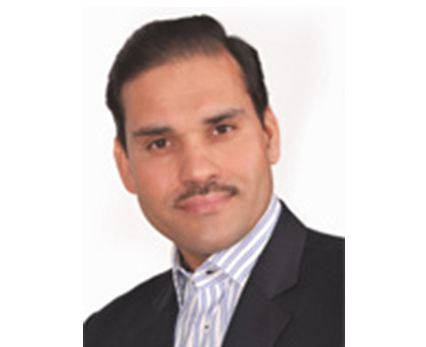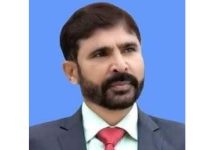Waheed Hussain
Since 1985, I have been watching conduct of general elections, the winners always declared the process free, fair and transparent, while, the losers called it rigged. The last week elections ended up with the same old narrative of accusations and counter-accusation of massive rigging and irregularities across the country. In interior Sindh the GDA, in Karachi Jamat-i-Islami, Tehreek Labaaik Pakistan and Pakistan Tehreek Insaf, in Baluchistan the nationalists and JUI (F), in Khyber PakhtunKhwa Awami National Party, while in Punjab PTI were protesting against the ECP blaming it for failing to hold free, fair and transparent polls on February 8, 2024.
Other than Pakistan Tehreek-i-Insaf (PTI), most of these protesting political parties have ethic, regional and religious outlook. Even in the past they used to win seats in a single digit, except when they had formed election alliances either at the provincial or national levels. For Example, Jamaat-i-Islami along with other religious like-minded parties formed a Islami Jamhoori Ittehad (IJI) in 1990 elections against the Pakistan Peoples’ Party. The leading party in IJI was Pakistan Muslim League (Nawaz). Again, in 2002 multi-party religious alliance Muttahida Majlis-i- Amal (MMA) was formed including Jamaat Islami (JI) and Jamiat Ulema-i-Islam (Fazal) and others. The alliance had won good number of seats in the national assembly and formed a government in Khyber Pakhtunkhwa (KPK) province.
However, as a single political party, they never won a big number of national or provincial assemblies’ seats to form an independent government.
No doubt, Tehreek Labbaik Pakistan (TLP) has huge following in the country. It succeeded in getting millions of votes from various constituencies in 2018, as well as in the present general elections. However, it needs some more time to win election and reach to the national or provincial assemblies.
Awami National Party (ANP) has been wining seats in various districts of the KPK province including Charsadda, Mardan, Peshawar, Sawabi, Nowshera and Malakand districts in the past. But since 2013 the PTI has defeated ANP like other political parties in the province. As for as Grand Democratic Alliance in Sindh was concerned, It was facing a tough competition from PPP.
Former President of Pakistan and co-chairman, Asif Ali Zardari’s controlled and managed party was ruling the Sindh province for past 15 years. The party has a strong hold on the provincial politics. It has won the election for fourth consecutive time and ready to form another provincial government in few days. We should not forget the fact that Pakistani politics is combination of popularism, power and money. In the recent elections voters in Baluchistan preferred to elect the main stream national political parties instead of supporting the regional ethnic ones. Most of the seats in the province were being won by the PPP, JUI (F) and the PML (N).
Keeping in mind the Pakistani political and administrative structure, no doubt, that there must have been some irregularities and short-comings in the election process in some constituencies, yet, declaring the entire election exercise a faulty, is a sweeping statement based on a political point scoring. I am sure when the prominent lawyers like Salman Akram Raja and Shohaib Shaheen, who were contesting election for the national assembly from Lahore and Islamabad constituencies would present a credible evidence of rigging in the court.
The massive rigging narrative is being crafted by the PTI social media teams to target the ECP, political opponents as well as the establishment. Suppose if any state institution was involved in the rigging, then how PTI-backed independent candidates could win hundreds of national and provincial assemblies’ seats? The final results tell that the party stood first in the National Assembly, won 85 percent seats in KP, grabbed more than 115 seats in Punjab. Was the rigging done to benefit the PTI? Many PML (N) senior leaders such as Khawaja Saad Rafeeq, Rana Sanaullah, Khuram Dastagir and Abid Sher Ali, who have been winning elections for decades from their respective constituencies have lost the election and respectfully accepted their defeat. If the rigging was done, why they were left out of the assembly? If the rigging was done why Nawaz League got just 73 seats out of 266?
Looking at the number of seats being captured by different parties, it suggests, that PTI is the actual beneficiary of the so-called rigging, if there was any? Imran Khan in 2013 elections presented the narrative of 35 punctures. He held 126 days sit-in in front of the Parliament House along with his former associate Dr. Tahir ul Qadri. Later in a TV interview he explained that he got this figure of 35-punctures from one of the TV programs. He could not prove anything regarding his claim in the superior court. The rest is the history. When his party won the election in 2018, the PDM accused him of rigging. He was accused of being a product of RTS. For four years he was tagged as selected instead of an elected Prime Minister of Pakistan. This political attitude has to change. This problem is not only with the PTI but most of the political parties have the same undemocratic, negative and selfish approach.
Every citizen has the constitutional right to protest, however, such demonstration must be peaceful. The crowd should not harm the public and private properties. They should ensure the safety of the citizens. They should ensure free movement of the masses. But again, will these protests will address the actual issue until the candidates and the political parties approach the right forums. At the end of the day, they have to reach out to ECP and courts for the redressal of their complaints.
The problem with the PTI is that its leadership has always been using an abusive, harsh and derogatory language against all institutions including the judiciary and military. Unfortunately, the party’s social media teams follow the same practice. Social media is a platform to inform, educate and entertain the public. It’s a good source of political communication too. But some of our political parties used the platform for targeting state institutions and personalities. The social media intolerance is giving birth to the digital violence in the society. Culture of digital intolerance is harming the young generation. It’s the responsibility of all political parties specially PTI and PML (N) to follow a code of conduct on the social media while expressing their political opinions, issuing statements or reactions. After the last week elections trends on the ‘X’ platform have been launched not to criticize the election conducting body but to damage the security institutions of the country.
From political point of view the purpose of PTI protests and social media campaign regarding election results must be a strategy to put maximum pressure on the institutions and legal forums to get some kind of relief for the party leadership. With all difficulties and hurdles in the elections, PTI has performed well. It is going to form a government in PK. It has good numbers at center and Punjab. However, Imran Khan has decided not to sit with PPP, PML (N) and the MQM in coalition. Like other political parties, PTI does not have sufficient MNAs to form a government on its own. Naturally, it will sit on the opposition benches both at center and in Punjab. As an opposition it can give tough time to any future government. Learning from the past mistakes, PTI should remain part of a parliamentary system. In assemblies it will be able to challenge decisions of the government. All political players are supposed to give up their personal agendas and give the country first priority.
The writer is a senior print and broadcast journalist

















